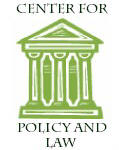|
New IRmep book now available!

on Twitter!
Audio




|
10/25/2004
A Regional Diagnosis:
Aged Arab Rulers on Life Support
by Hassan Al-Husseini - a Saudi writer based in
Bahrain
There is a strong rumor going around that Sheikh Zayed of Abu Dhabi, in his 80s, is on
life support. It is said that the only decision left is when -- or whether -- to remove
the life support. Big questions arise over the succession, which is supposed to be by
election. Sheikh Zayed had strong opinions and has set many policies in place that
affect the entire Gulf. Dubai wants a greater say in national UAE affairs.In Kuwait, they have been grappling for weeks with the health of the ruler,
Sheikh Jaber Al-Ahmad Al-Sabah, and the Prime Minister Sheikh Saad Al-Abdullah
Al-Sabah, both in their 70s. The ruling family is considering a total change, but is not
sure when. Rumors have been flying in recent weeks.
In Saudi Arabia, King Fahed has been on life supports of one kind or
another for nearly 9 years. Crown Prince Abdullah and Second Deputy Premier Prince Sultan
are in their early 80s. About 60% of the population is below 21, as is the case in Kuwait
and the UAE. These three countries control over 45% of the world's oil reserves.
One of the two uncles of King Hamad in Bahrain, Sheikh Mohammed bin
Salman, has been on life support since June 2002. He owns much property in Bahrain. The
King's other uncle is Prime Minister Khalifa.
In Palestine, President Arafat, in his 70s, required special medical examinations by
Tunisian doctors last week. The Palestinian government's security services and militias
are engaged in power struggles. The outcome is unclear. In a sense there is no
Palestinian Authority.
In Egypt, President Mubarak is in his early 70s, and has no vice
president. He recently went to Germany for a spine operation, but couldn't lose weight in
preparation for surgery. His son is being groomed as a successor. The opposition and
foreign investors are not impressed.
Iraq remains without a stable government, with a major insurgency against US occupation
and risks of a civil war involving Shias, Sunnis and Kurds. Egypt, of all places, will
host a conference on Nov. 22 in Sharm El-Sheikh to review preparations for a democratic
election in January 2005! Every night we see the carnage in Iraq on local satellite
TV.
Lebanon just extended the term of President Lahoud under Syrian guidance. The constitution
had to be amended. The Government of Prime Minister Rafik Hariri resigned last week, under
threat of Israeli, US and French interventions. Opposition General Aoun is still trying to
pick a fight with Syria since his ouster in 1990.
Syria remains under threat by the US and Israel, accused of involvement in Lebanon through
support for Hizballah and in Iraq for alleged support for the insurgency. The Syrian
government is still run by old timers surrounding the young President Bashar Assad.
Libya has been removed from the US terrorism list, but President-for-Life Qaddafi was just
accused of trying to finance the assassination of the Saudi Crown Prince, and of financing
some Iraqi insurgents. The US oil companies have not been able to move in yet. Sudan
is tottering with its troubles in Darfur and the South. Qaddafi was trying to help them
out with his conference in Tripoli last week.
In Israel, Prime Minister Sharon is continuing his carnage against the Palestinians. We
see it every night on Al-Arabiya (Saudi from Dubai), Al-Jazeera (Qatar), Al-Qatariya,
Al-Emarat (UAE), Al-Alam (Iran in Arabic), Al-Manar (Hezbollah from Lebanon) and all other
Arabic TV channels, with the exception of the new US TV Al-Hurra ("Freedom"),
which often does documentaries on the Wild West cowboys and Indians.
The US is trying to have a normal election, but a new toss-up is still possible. Whereas
most people oppose the war in Iraq, both major candidates support the war. The US budget
deficit is over $400 billion, and the US military budget is about $400 billion. The US
national debt is somewhere near $7 trillion, requiring perhaps $500 billion in annual
payments on its interest alone (that's your US government bonds!).
Historians will look back and see what a mess we have. We truly need healthy
visionaries to resolve the Middle East conflicts. But I am afraid things are still going
to get a lot worse with no respite in sight. Nuclear proliferation is ongoing out
there. This can only augur bad news for the oil and
energy sectors. |

 Sign
up for IRmep's periodic email bulletins!
Sign
up for IRmep's periodic email bulletins! Sign
up for IRmep's periodic email bulletins!
Sign
up for IRmep's periodic email bulletins!